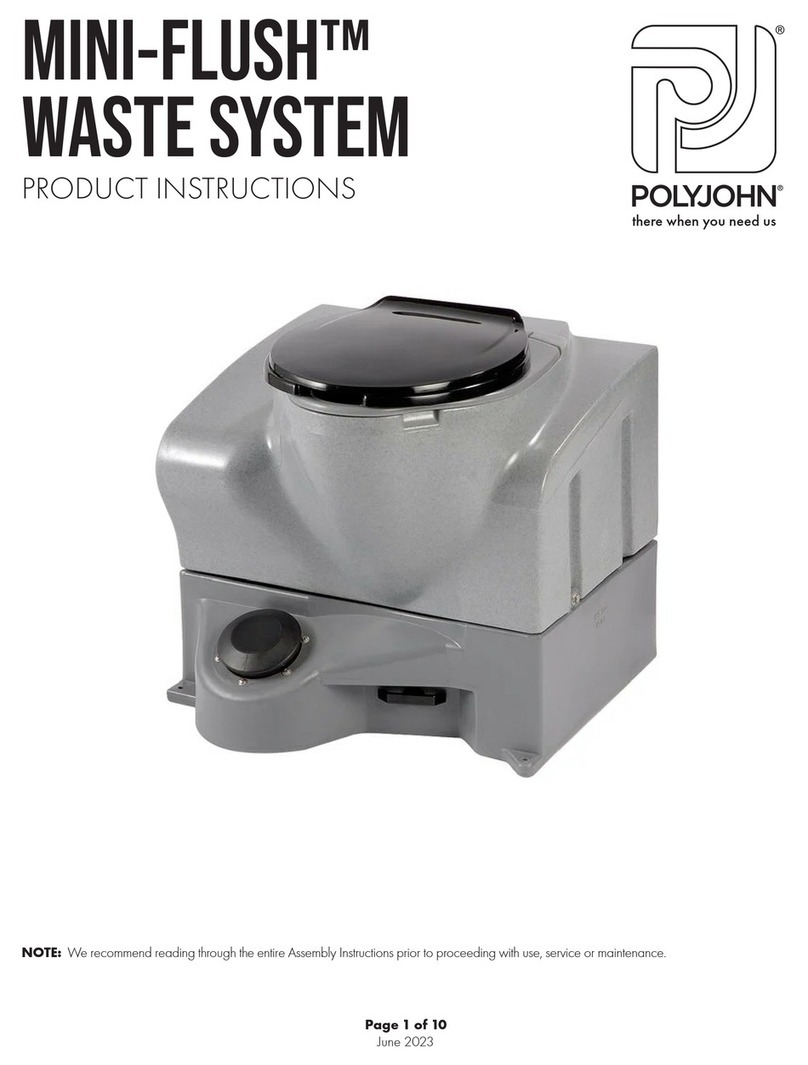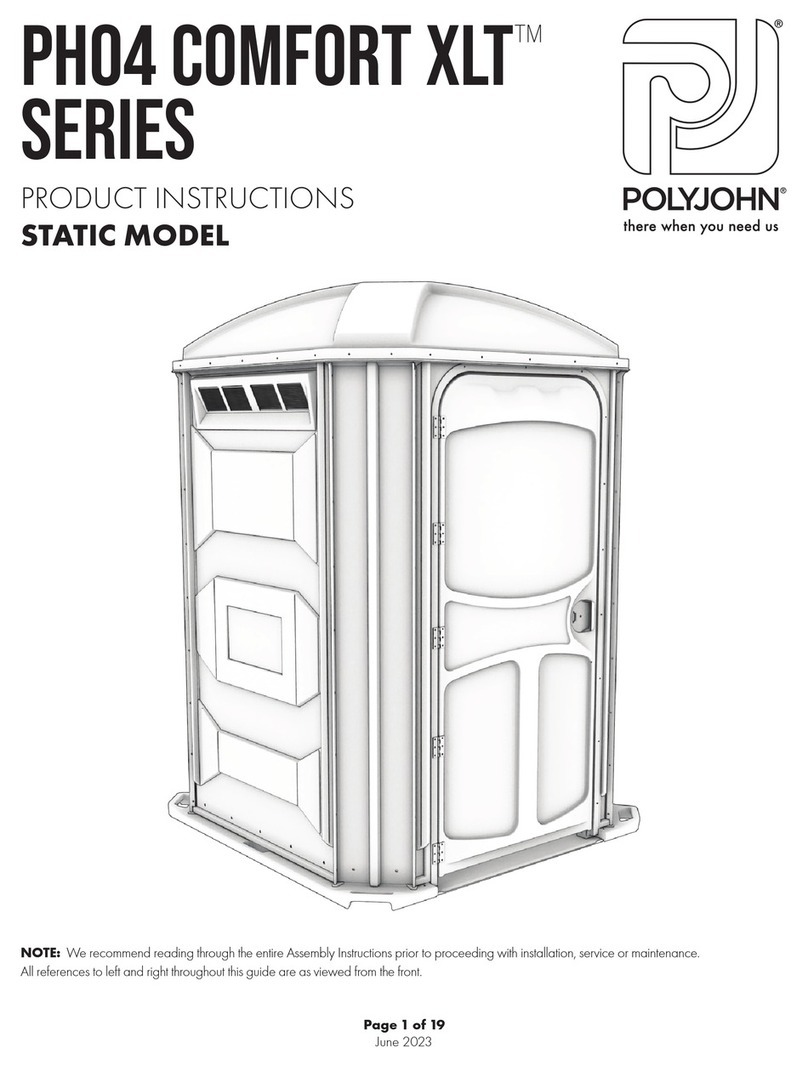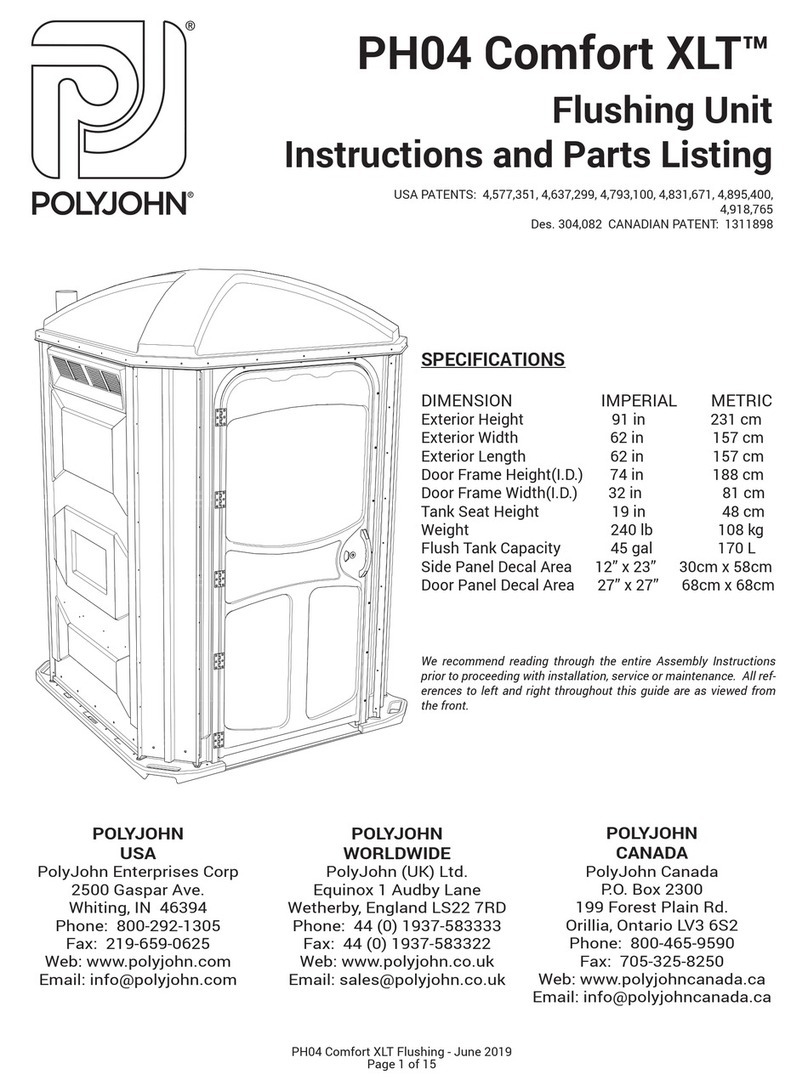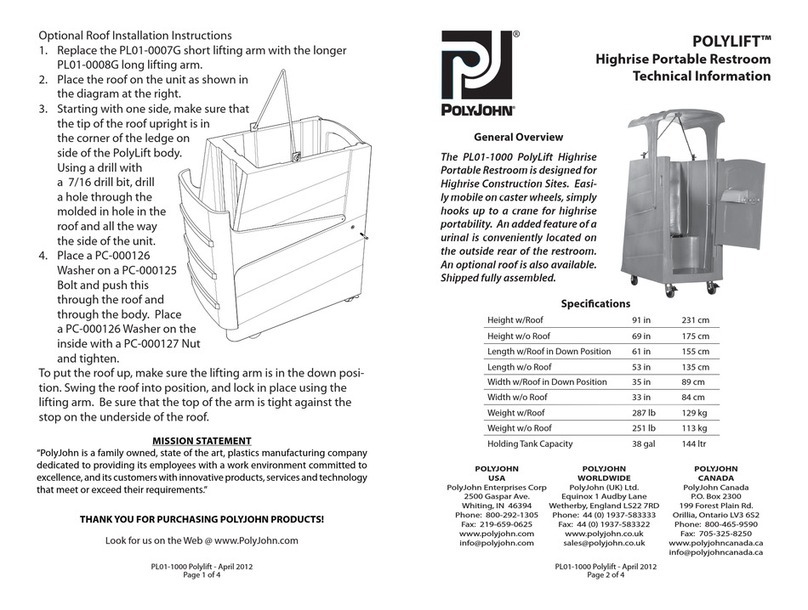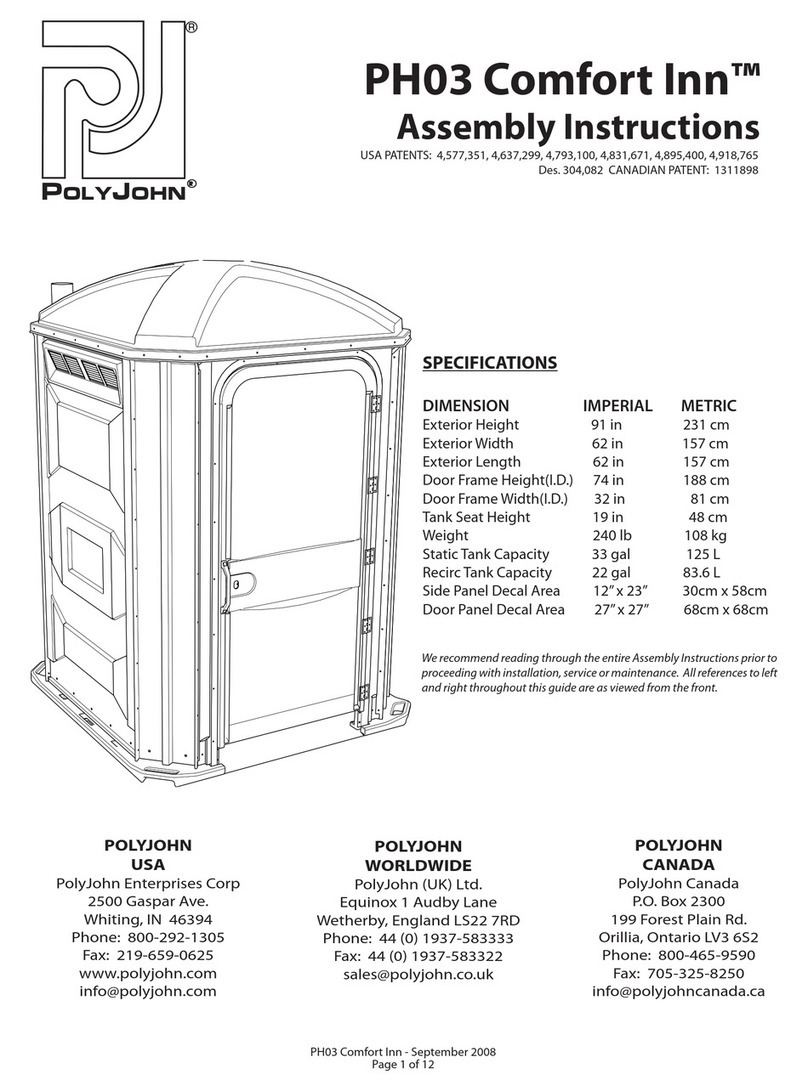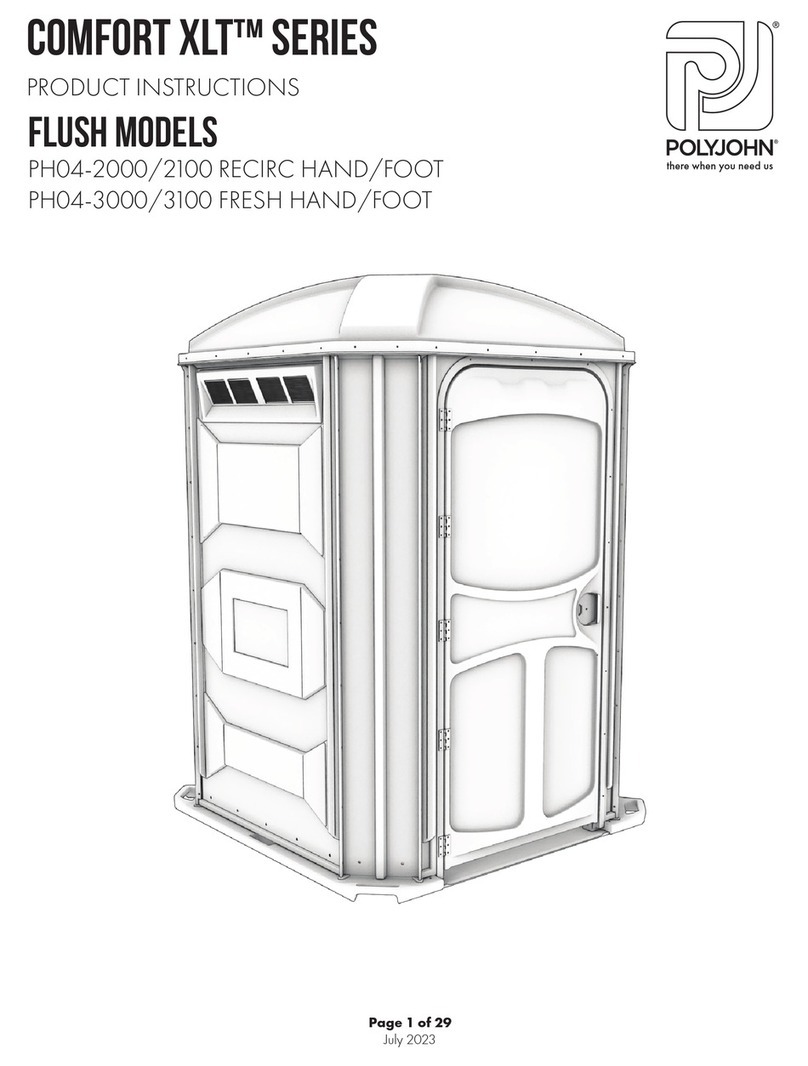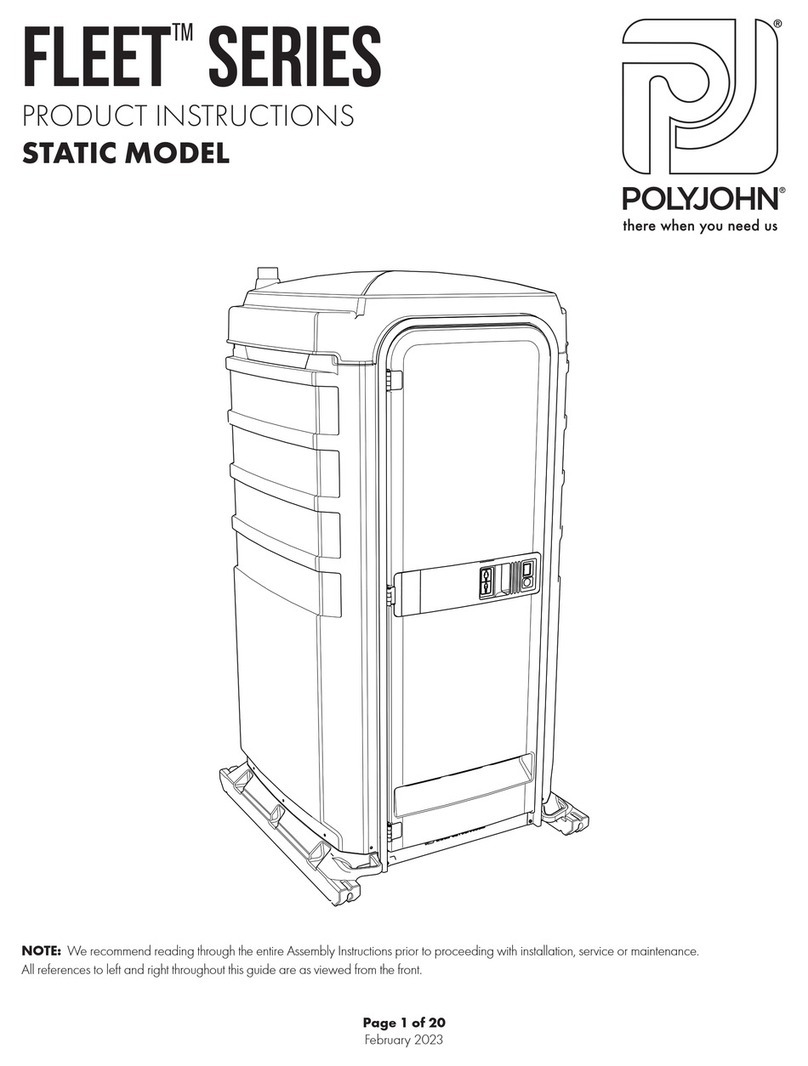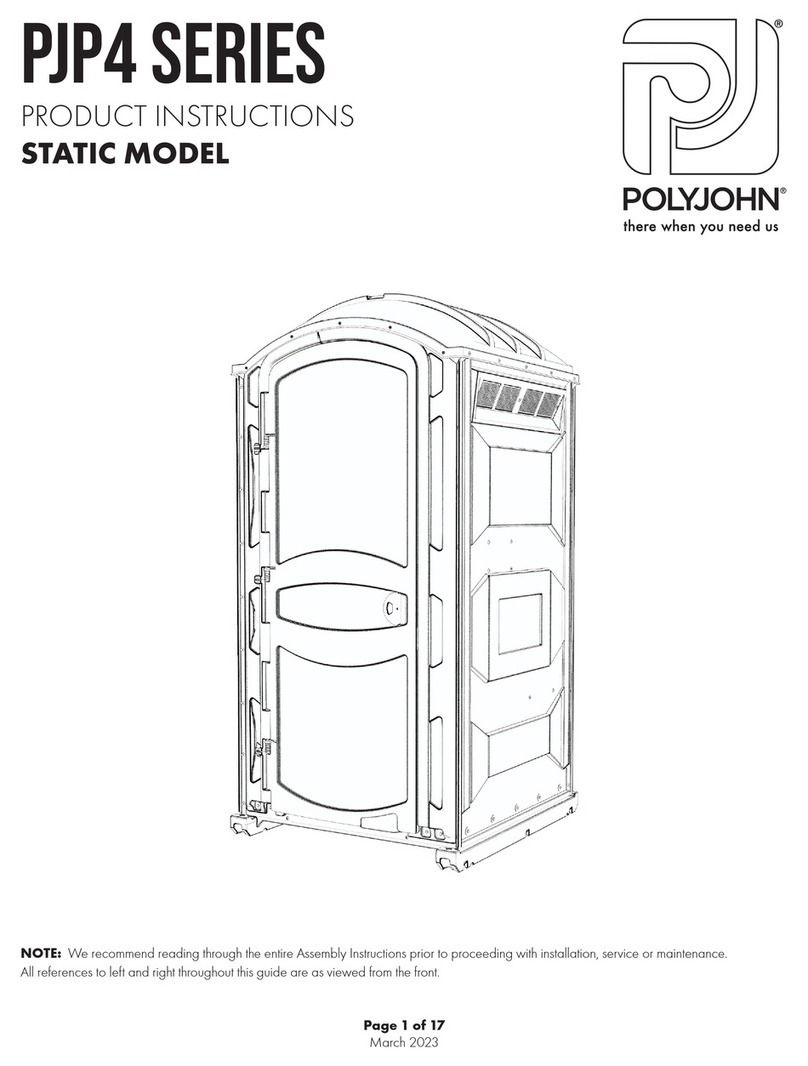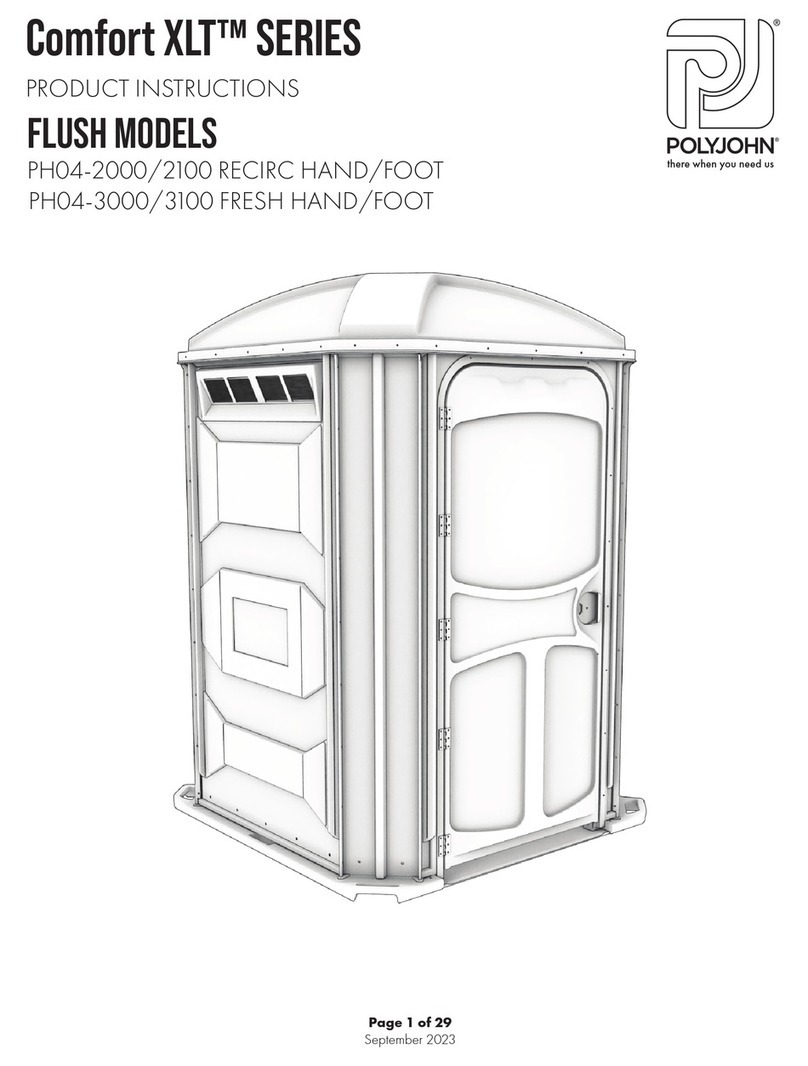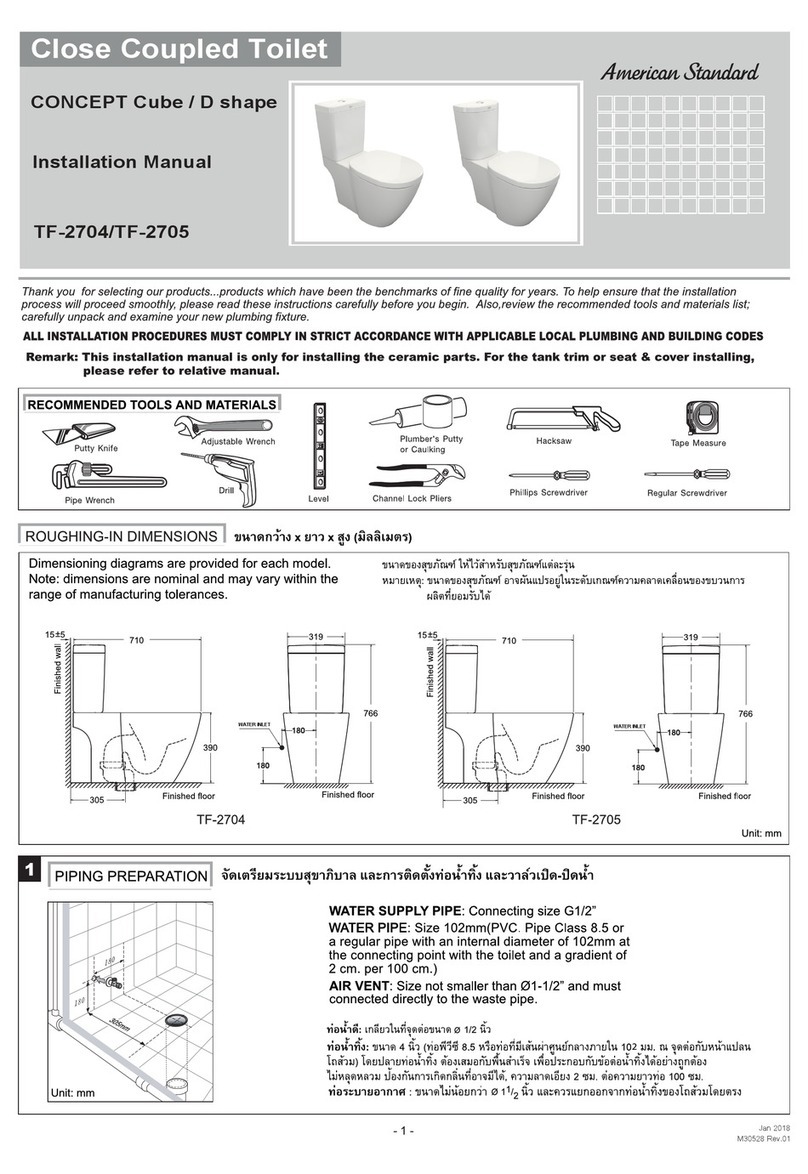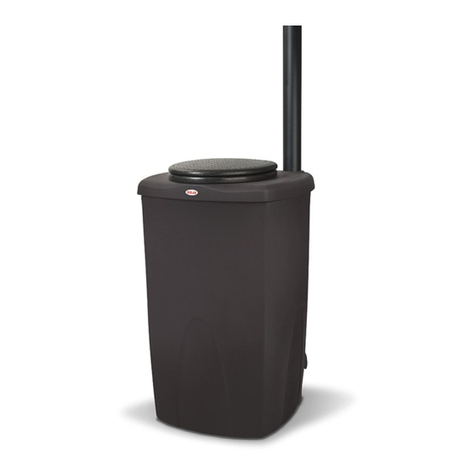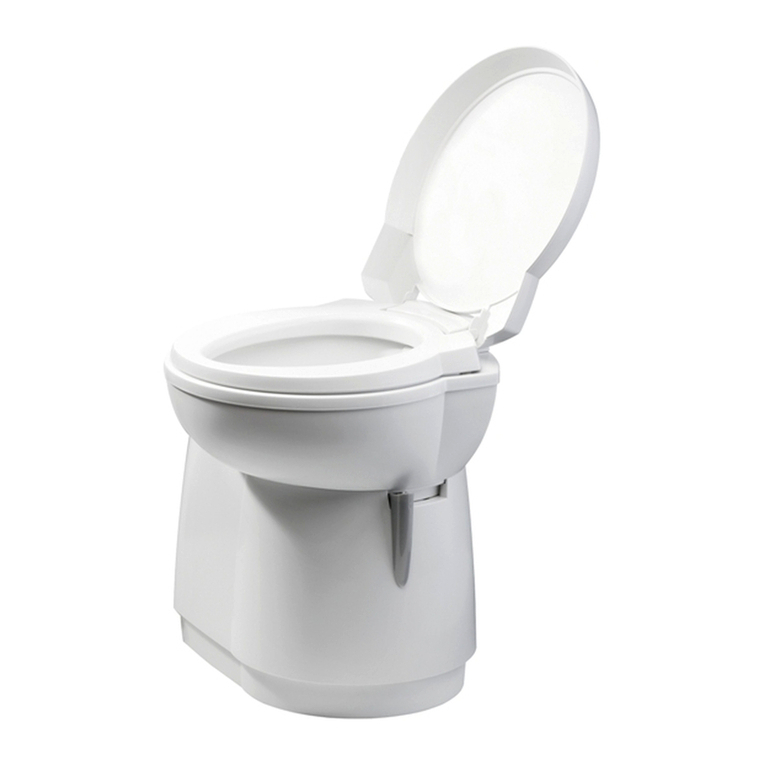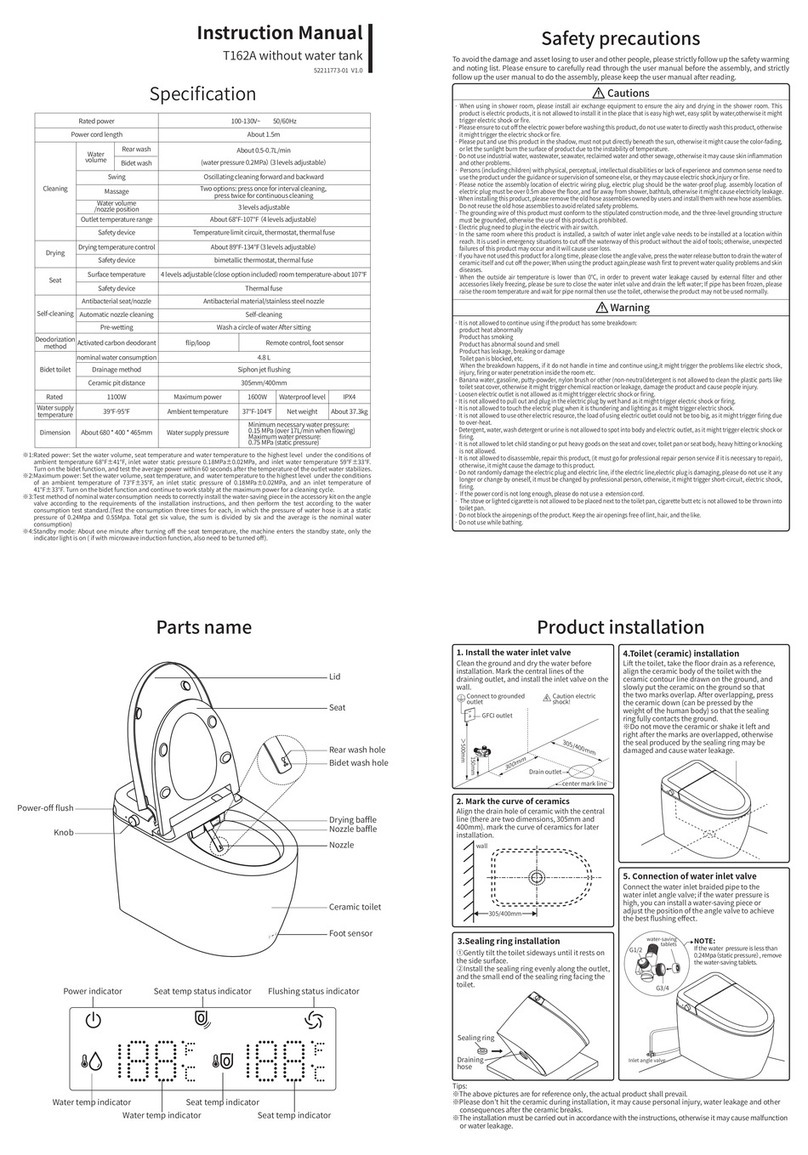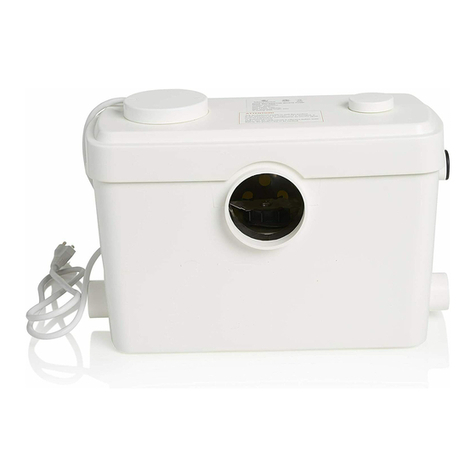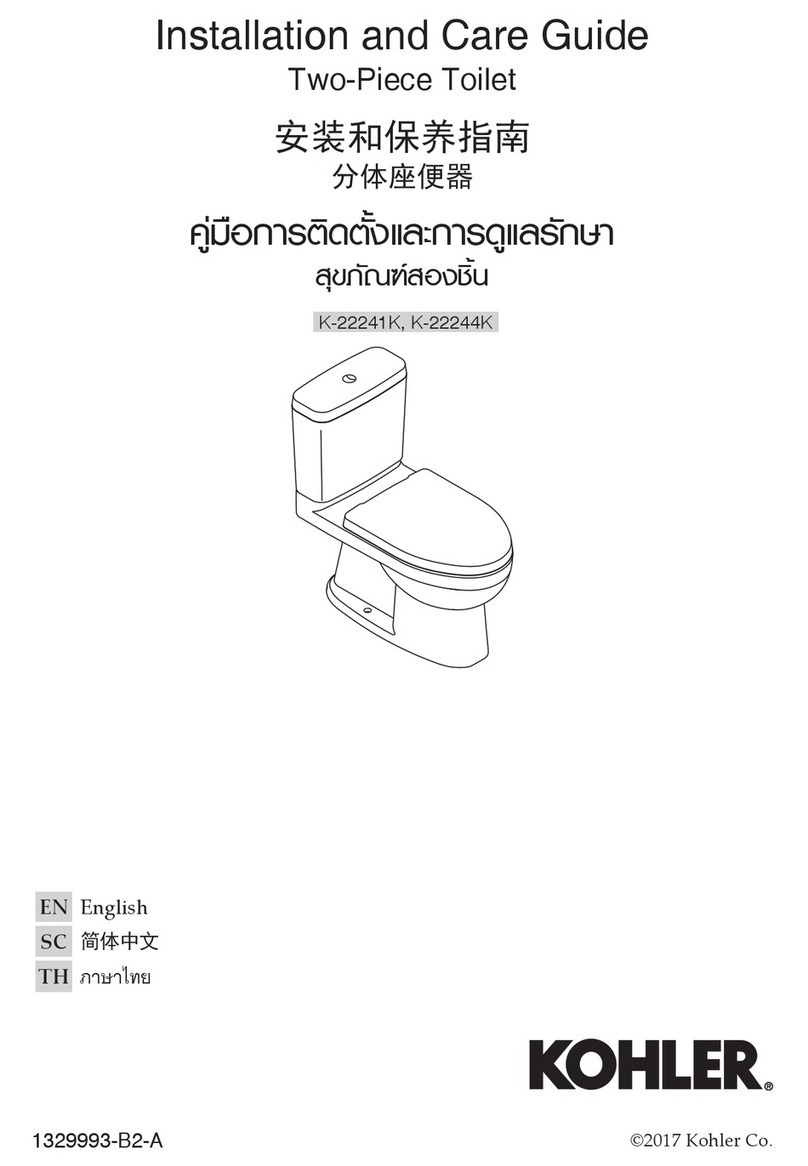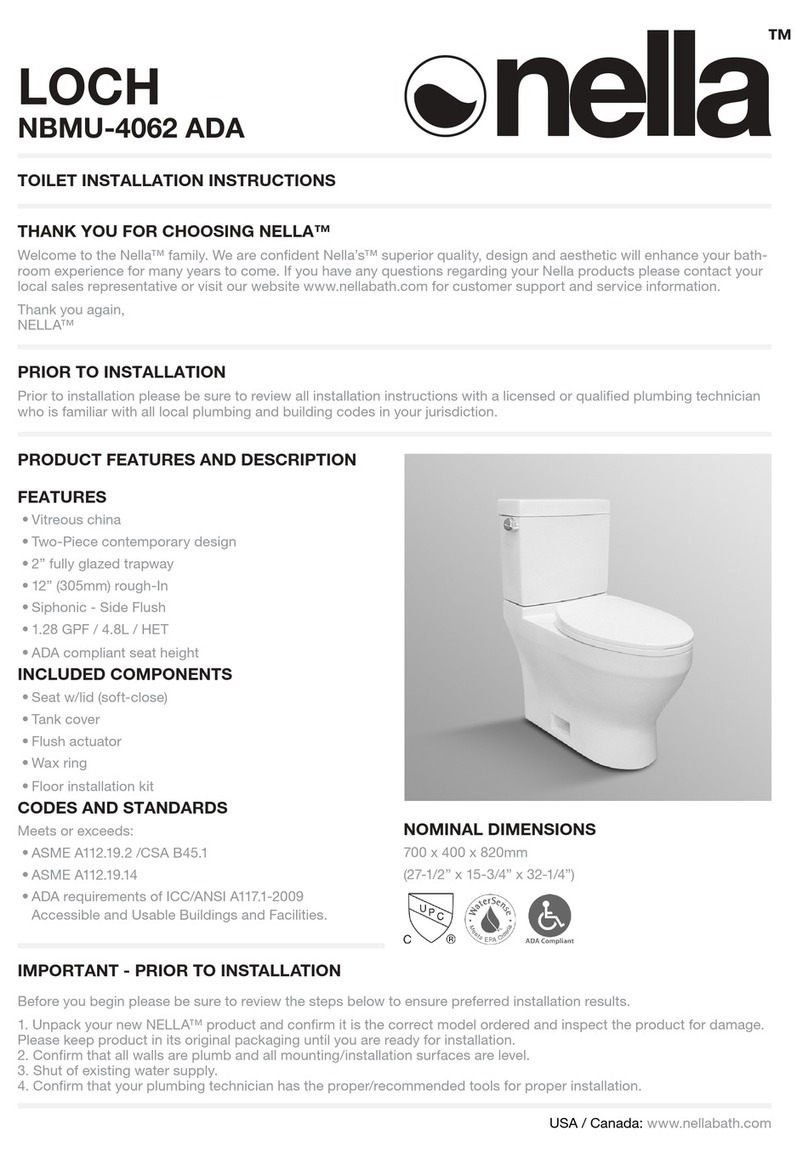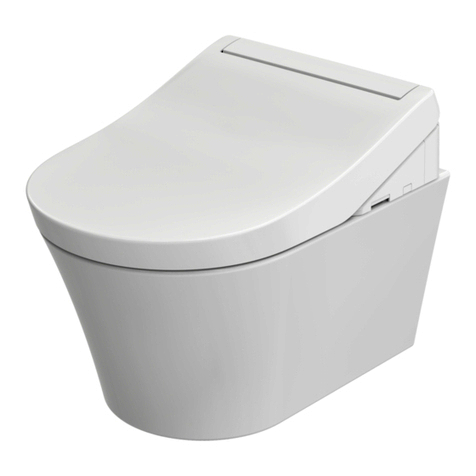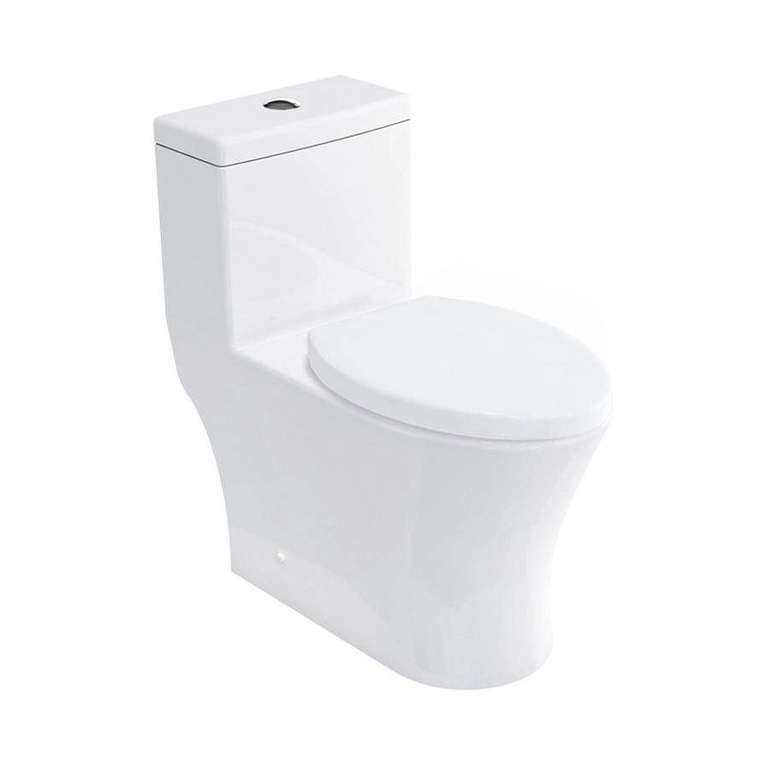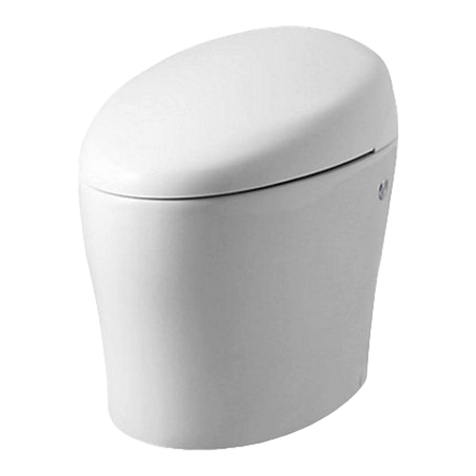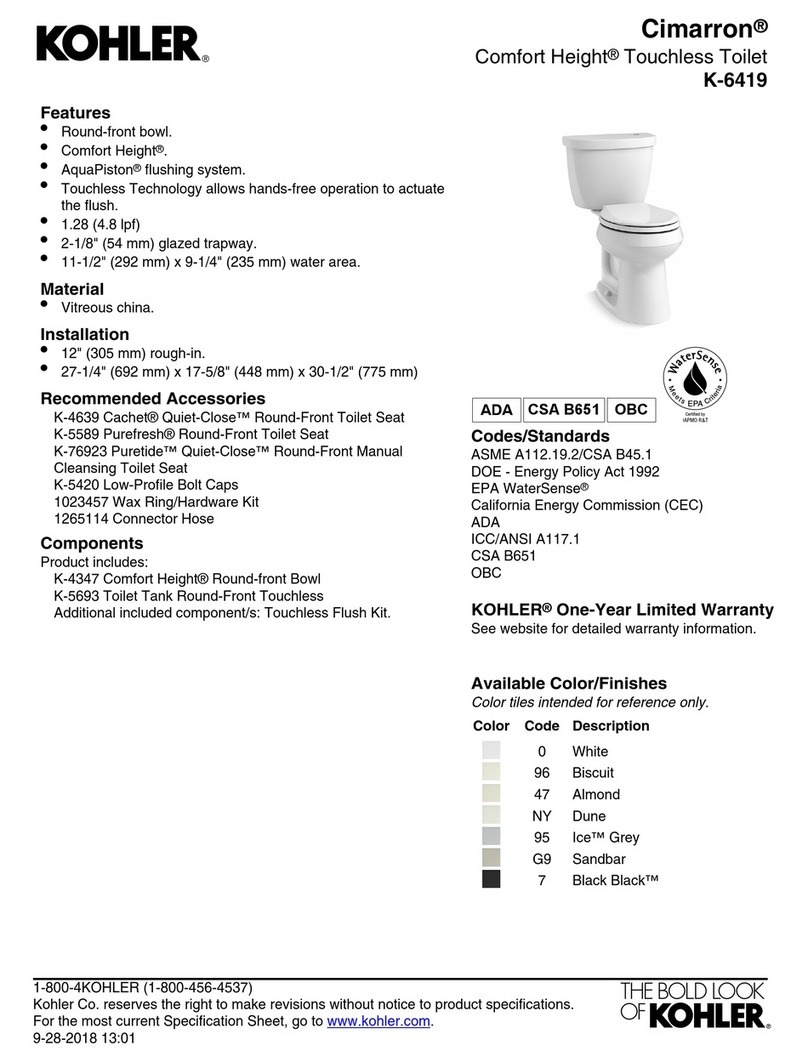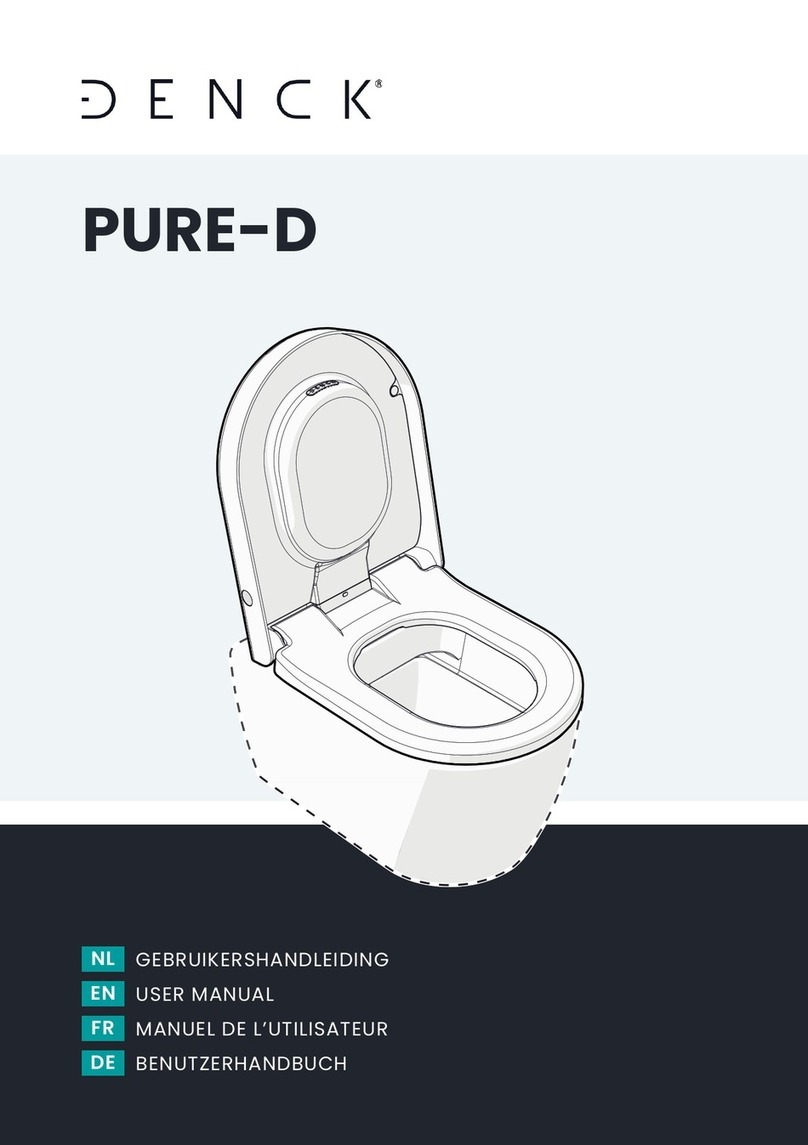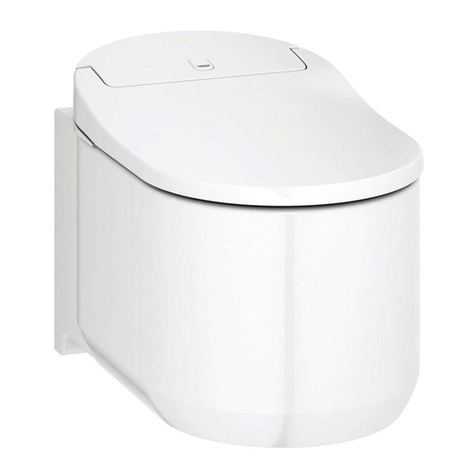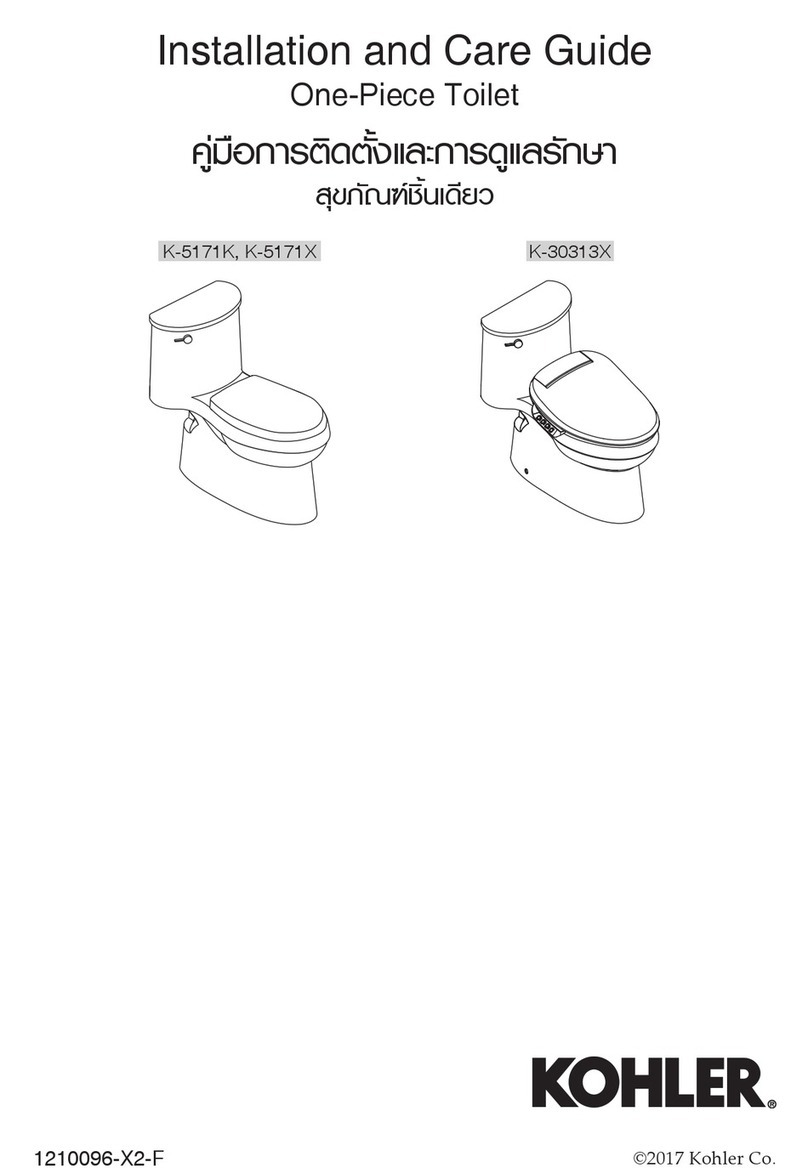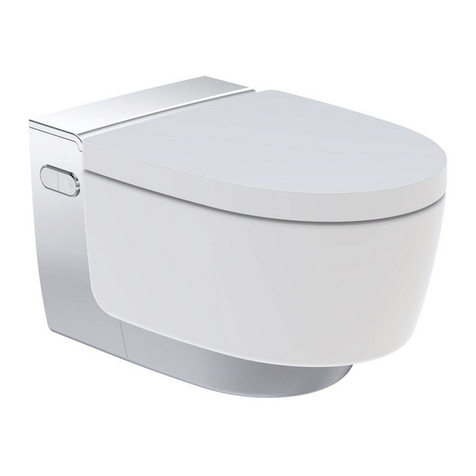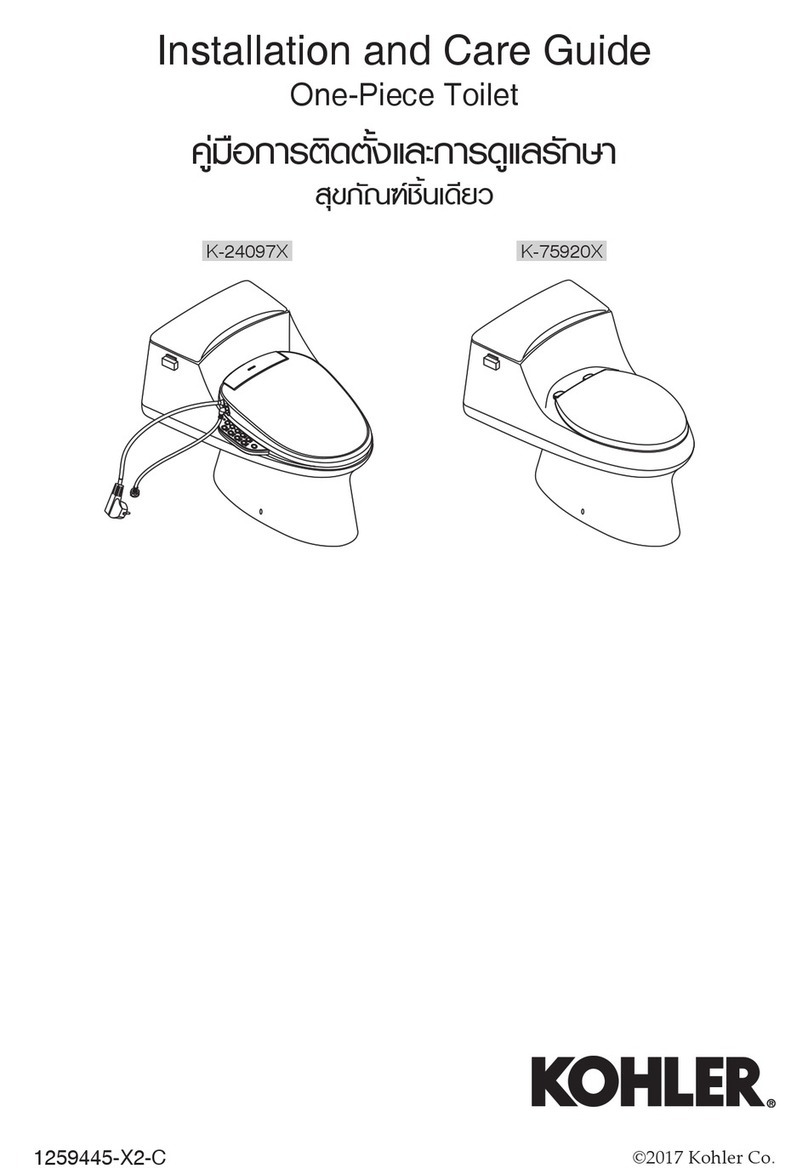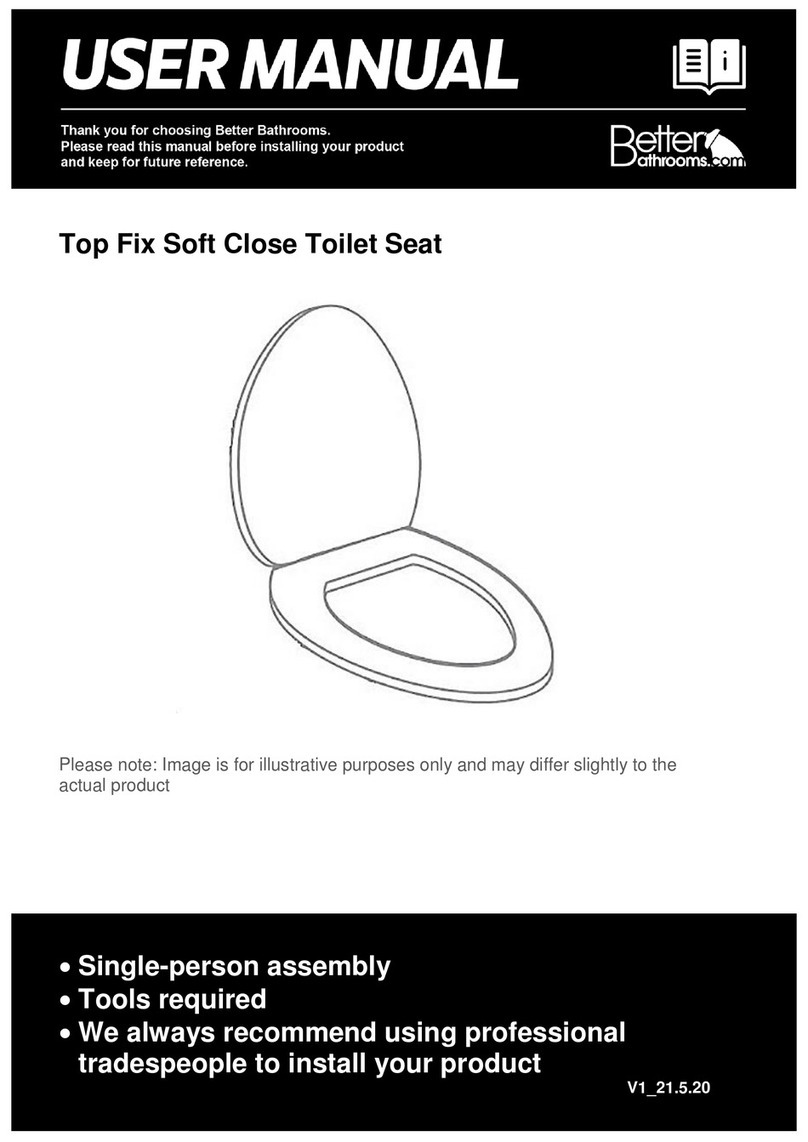
Page 10 of 20
September 2022
PJN3 SERIES
The sink bowl is attached to the sink tank with (2) PC-000107 rivets that act as hinges.
To Open the Sink Top (follow instructions as illustrated on the right)
overview of optional sink installation
ASSEMBLY INSTRUCTIONS
LEFT WALL INSTALLATION
Refer to Illustrations. Before installing the sink, a 1-1/8” drain hole that will accept
the drain hose must be cut in the waste tank. This hole should be located on the top
left front edge of the waste tank approximately 16-1/2” up from the floor.(As shown
on the right, a 1-1/2” plug PC-000560, is available to cover the urinal drain hole.)
NOTE: Make sure the drain hole you are cutting as indicated above is
just below the urinal hole. From the exterior, drill two 13/64” holes (as shown
on the left) through the sidewall and the back of the sink, be sure the sink is pressed
flat against the sidewall. Fasten the sink to the side from the exterior with (2) PC-
000103 rivets and (2) PC-000106 back-up washers on the inside of the sink. Attach
sink to base skid: Drive (1) PC-000158 self-tapping screw in the pre-drilled hole in
the sink mounting plate. Perform a system check by adding a few gallons of water
to the sink. Depress the pump a few times to “prime” it. The pump has a built in check
valve that will hold the prime between uses.
RIGHT WALL INSTALLATION
Before installing the sink, a 1-1/8” drain hole that will accept the drain hose must be
cut in the waste tank. This hole should be located on the top right front edge of the
waste tank approximately 15-1/2” up from the floor.
From the exterior, drill two 13/64” holes through the sidewall and the back of the sink
(as shown on the left) be sure the sink is pressed flat against the sidewall.
Fasten the sink to the side from the exterior with (2) PC-000103 rivets and (2) PC-
000106 back-up washers on the inside of the sink. Attach sink to base skid: Drive
(1) PC-000158 self-tapping screw in the predrilled hole in the sink mounting plate.
Perform a system check by adding a few gallons of water to the sink. Depress the
pump a few times to “prime” it. The pump has a built in check valve that will hold the
prime between uses.
WINTERIZING SINK (IF INSTALLED)
• Drain all water from the tanks.
• Flush tank with a solution of chlorine and water.
• Depress the foot pump to clear lines.
optional sink installation
2. INSERT OBJECT INTO HOLE.
(THIS WILL PUSH LOCKING TAB ALLOWING
ACCESS TO INNER TANK FOR MAINTENANCE.)
3.OPEN SINK LID
1. APPLY DOWNWARD
PRESSURE ON LID
7”
2”
43-1/4”
42-3/4”
